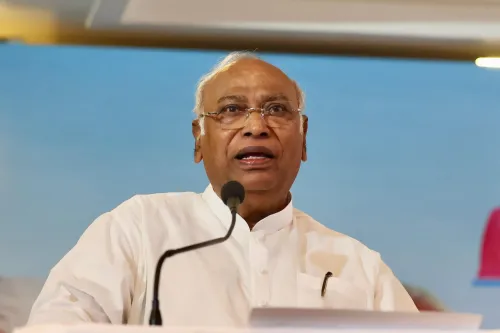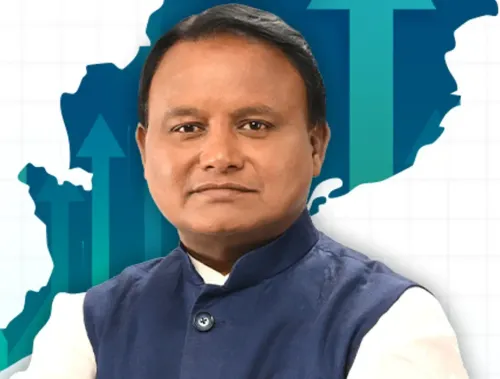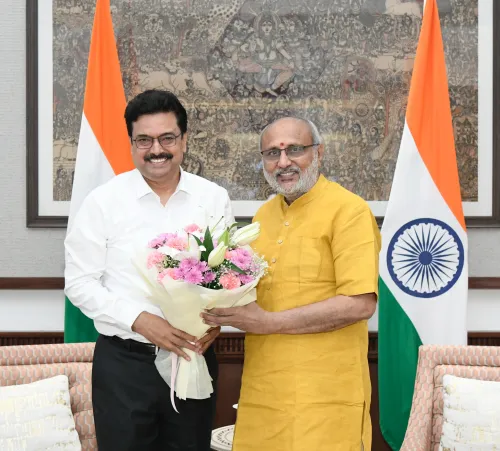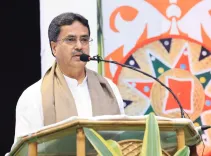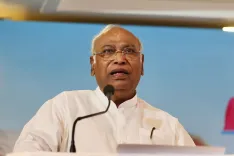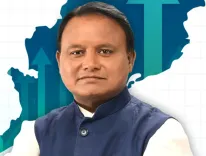How Are Sector Leaders Proposing to Align Funding for Developing Nations at the UN Climate Summit?

Synopsis
Key Takeaways
- Adaptation finance is critically underfunded for developing nations.
- India's adaptation needs are estimated at $359 billion annually.
- Public finance must lead to attract private investment.
- Domestic initiatives are as vital as global negotiations in enhancing resilience.
- Inclusive policy frameworks are necessary for effective climate action.
New Delhi, Oct 8 (NationPress) With less than a month remaining until COP30 in Brazil, prominent policymakers, financial institutions, and climate specialists gathered on Wednesday for a pivotal roundtable focused on adaptation finance.
The private dialogue, organized by Climate Trends, brought together officials from the Ministry of Environment, Forest and Climate Change and the Ministry of Finance, along with experts from international development financial organizations, research institutions, and academia.
Discussions focused on implementing the Global Goal on Adaptation (GGA), evaluating India’s adaptation finance gaps and requirements, and considering reforms in global climate finance systems to guarantee fair, accessible, and sufficient funding for developing nations.
Participants pointed out that India, which is experiencing escalating climate challenges such as intense heat, unpredictable monsoons, floods, and losses in agriculture, remains drastically underfunded for adaptation.
While international adaptation finance increased from $22 billion to $28 billion in 2022, the actual need is estimated to exceed $350 billion annually, with more than 60% currently provided as loans—a burden for economies already susceptible to climate stress.
The event featured two primary sessions: the first discussed policy perspectives connecting India’s forthcoming National Adaptation Plan (NAP) to COP30 objectives, while the second examined financing mechanisms, including multilateral development bank (MDB) reform, blended finance, resilience bonds, and private sector participation.
“Adaptation must be integrated into a profitable market system that attracts private investment and fosters entrepreneurial ventures. We require a robust policy framework that empowers all levels of governance, including state governments, municipalities, and panchayats, to secure funding,” stated Abhishek Acharya, Director of the Ministry of Environment, Forest and Climate Change.
Participants also emphasized the necessity for subnational access to climate finance, allowing states and districts to strategize and implement locally relevant adaptation initiatives.
Experts concurred that while global negotiations are crucial, domestic and regional efforts will be instrumental in enhancing resilience.
“We need to analyze the domestic political landscape and pinpoint key drivers. We must evaluate our own capabilities to develop narratives on prioritizing adaptation,” said Ashish Chaturvedi, Head of Action for Climate and Environment at the United Nations Development Programme.
Amrita Goldar, Senior Fellow at the Indian Council for Research on International Economic Relations, remarked, “Assessing adaptation financing requires evaluating various stressors and their impact on GDP across sectors. Scrutinizing budgets at both central and state levels presents a substantial challenge.”
“For adaptation, we lack clarity on technological prospects. How can we expect private finance to engage in niche technologies, so public finance should take the lead,” she added.
The dialogue concluded with a consensus that India’s leadership in adaptation finance, through data-driven planning, inclusive policies, and regional collaboration, can help bridge divides between the Global North and South and shape the evolving global framework on adaptation.
“The geopolitics of the world is at a crucial juncture. With COP30 approaching, nations are grappling with how to make the Global Goal on Adaptation both practical and measurable. India is set to submit its inaugural National Adaptation Plan. Current assessments estimate adaptation needs at $359 billion annually,” stated Aarti Khosla, Director of Climate Trends.
“The quality of financing is also significant, as over 60% of existing adaptation finance is provided as loans. Additionally, the global political and economic landscape is unstable. Commitments made at multilateral forums are only as effective as the systems that implement them.”
The outcomes of this discussion will shape India’s stance at COP30, as the country prepares to present its first National Adaptation Plan to the UNFCCC.
The 30th UN climate conference, known as COP30, will be held from November 10-21 in Belém, Brazil. This event will gather world leaders, scientists, NGOs, and civil society to deliberate on priority actions to combat climate change.
COP30 will focus on efforts needed to restrict the global temperature rise to 1.5 degrees Celsius, the introduction of new national action plans (NDCs), and the progress on financial commitments made at COP29.


